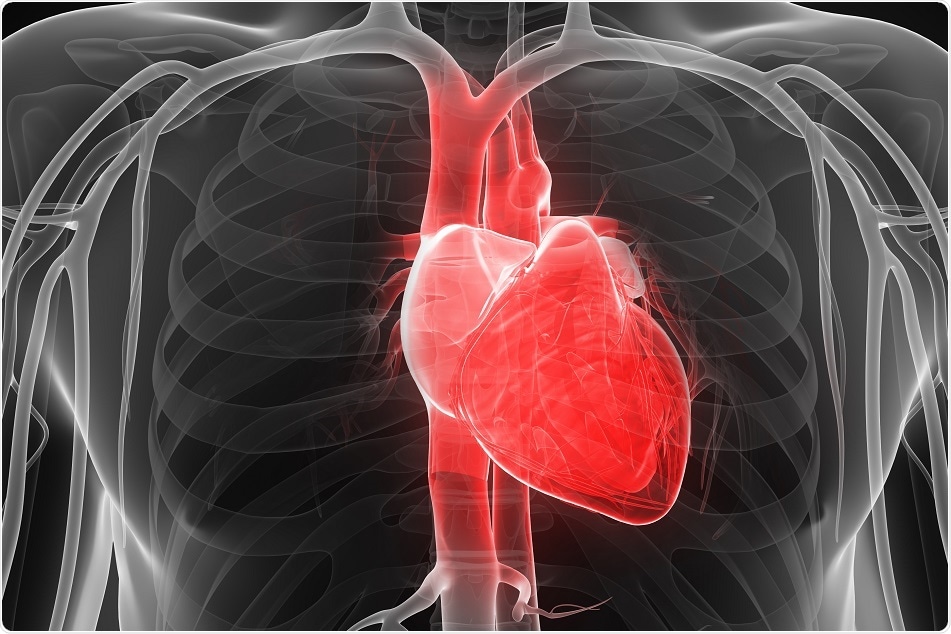
Researchers discover epigenetic mechanism underlying ischemic cardiomyopathy
Researchers at the University of Alabama at Birmingham have shed light on an epigenetic reprogramming mechanism that underlies the development of ischemic cardiomyopathy.

Shutterstock | Sebastian Kaulitzki
The finding, which has recently been published in Nature - Laboratory Investigation, is hoped to pave the way for personalized care for people with the condition.
Ischemic cardiomyopathy, which is caused by restricted blood flow to the coronary arteries, is the most common form of congestive heart failure, yet it can only be managed with symptomatic treatment because the cause of the condition is not known.
Now, Adam Wende and colleagues have shown that the epigenetic changes seen in ischemic cardiomyopathy probably reprogram the heart's metabolism and change the organ’s cellular remodeling.
The team compared heart tissue samples taken from the left ventricles of five ischemic cardiomyopathy patients with tissue taken from six non-ischemic cardiomyopathy patients.
One well-known epigenetic change is the addition to or removal of methyl groups from cytosine, one of the four main bases that make up DNA. Hypermethylation is associated with reduced gene expression and hypomethylation with increased gene expression.
The team found that in the heart tissue of ischemic cardiomyopathy patients, there was an epigenetic signature that differed to the heart tissue of non-ischemic cardiomyopathy patients. This signature was found to represent a well-established metabolic change, where the heart switches from using oxygen to produce energy to an anaerobic mechanism.
"Altogether, we believe that epigenetic changes encode a so-called 'metabolic plasticity' in failing hearts, the reversal of which may repair the ischemic and failing heart," says Wende.
Wende and colleagues found that hypermethylation was associated with a decreased expression of the genes involved in oxidative metabolism. An upstream regulator of metabolic gene expression, KLF15, was found to be suppressed by an epigenetic regulator called EZH2. The team also found that genes involved in anaerobic glycolytic metabolism were hypomethylated.
This involvement of EZH2 could potentially provide a molecular target for further research into precision-based heart disease treatments.



































No hay comentarios:
Publicar un comentario